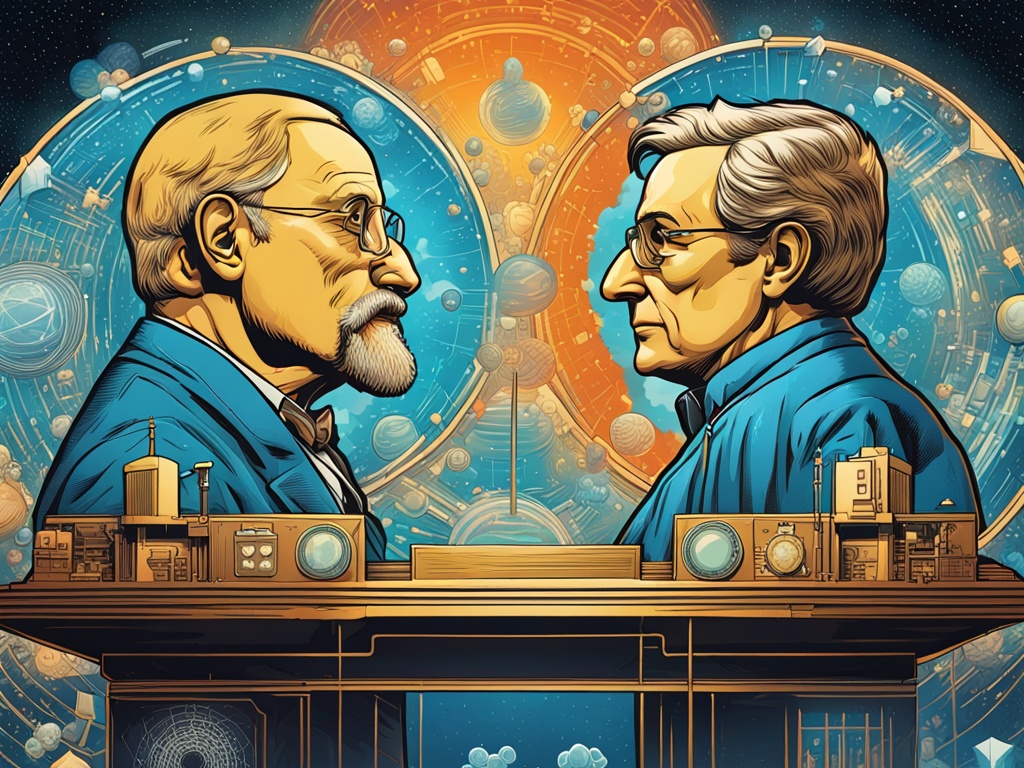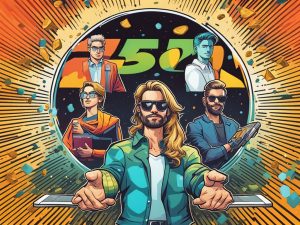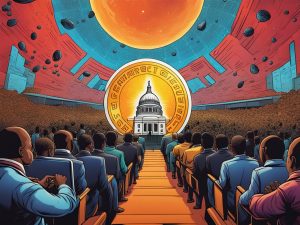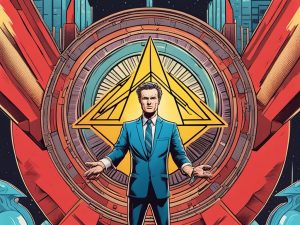Significant Awards for AI Innovators 🎉
This year, the realm of artificial intelligence takes center stage as John Hopfield and Geoffrey Hinton receive the Nobel Prize in Physics, with Demis Hassabis and John Jumper being honored in Chemistry. This prestigious recognition occurred during a distinguished ceremony in Stockholm, Sweden, marking a landmark achievement in AI research.
Neural Networks and Their Revolutionary Influence 🔍
The accomplishments of Hopfield and Hinton primarily stem from their pioneering work on neural networks, a fundamental element of contemporary AI technology. Hopfield, renowned as a physicist, introduced innovative concepts surrounding energy landscapes in the 1980s, leading to new insights into the optimization processes of neural networks. This framework allows these systems to reach stable, low-energy configurations effectively. Hinton expanded on these ideas in the early 2000s, delving deeper into the computational capabilities necessary for training neural networks. His contributions involving the Boltzmann Machine and deep learning technologies laid a foundation crucial for today’s AI-driven applications.
The Evolution of Chemistry through AlphaFold 🧬
In the domain of Chemistry, Demis Hassabis and John Jumper’s contributions with AlphaFold, an AI system from Google DeepMind, earned them the Nobel Prize. AlphaFold has drastically altered biology’s landscape by enabling precise predictions of protein structures, an area that has historically presented challenges for researchers. Understanding the spatial arrangement of proteins is paramount for pharmaceutical development and the fight against diseases. AlphaFold’s capability to accurately model almost every known protein holds profound consequences for the fields of medicine and biotechnology.
GPU Technology: Powering AI Innovations ⚡
Underlying these remarkable advancements in AI is the pivotal role of Graphics Processing Units (GPUs). Originally engineered for video games, these processors have become vital for the parallel processing requirements demanded by neural networks. Notably, NVIDIA GPUs have facilitated breakthroughs such as AlexNet and AlphaFold, allowing AI to tackle complex, large-scale problems with unmatched speed and efficiency.
AI’s Role in Industry and Research Transformation 🌍
The recognition of Nobel laureates in AI is not limited to scientific advancements; it extends to transformative impacts across various industries. The optimization strategies introduced by Hopfield find applications in AI-driven supply chain management. Similarly, Hinton’s neural network architectures profoundly influence innovations such as autonomous vehicles and sophisticated language processing systems. Furthermore, the success of AlphaFold is inspiring novel AI applications in diverse fields, including climate modeling and sustainable agricultural practices, revealing the extensive potential of AI in addressing pressing global issues.
This year’s awards signal a substantial shift in the landscape of scientific inquiry, wherein AI technologies are becoming integral to the exploration of both digital realms and tangible realities, propelling the future of numerous sectors.
Hot Take 🔥
The celebration of John Hopfield, Geoffrey Hinton, Demis Hassabis, and John Jumper highlights a crucial moment in science where artificial intelligence is becoming synonymous with major breakthroughs. The impact of their work underscores the significance of AI, not only in theoretical research but also in real-world applications. As this technology becomes more embedded in various domains, its potential to push boundaries and solve complex issues will only continue to grow, offering vast opportunities for future exploration and innovation.
For further information, please visit the source.





 By
By
 By
By
 By
By
 By
By
 By
By